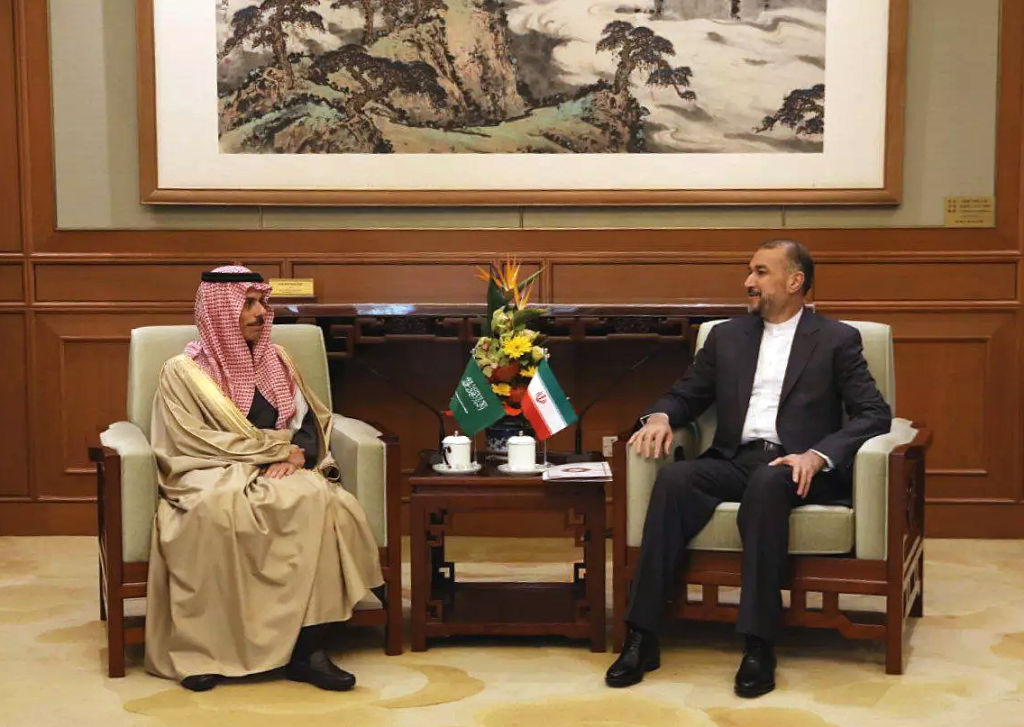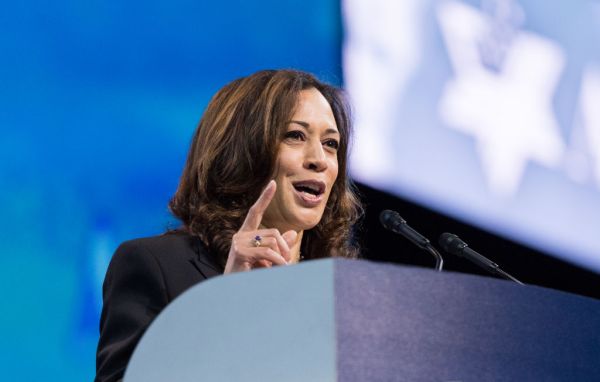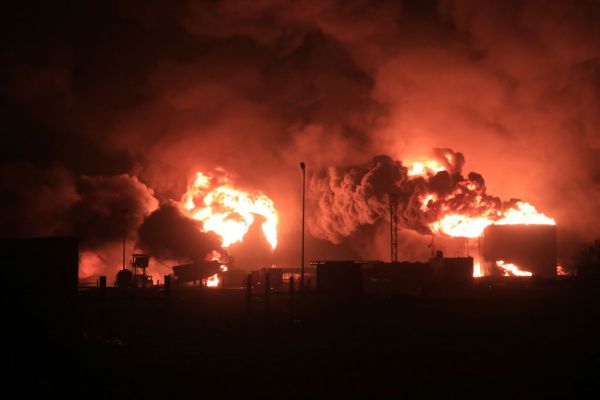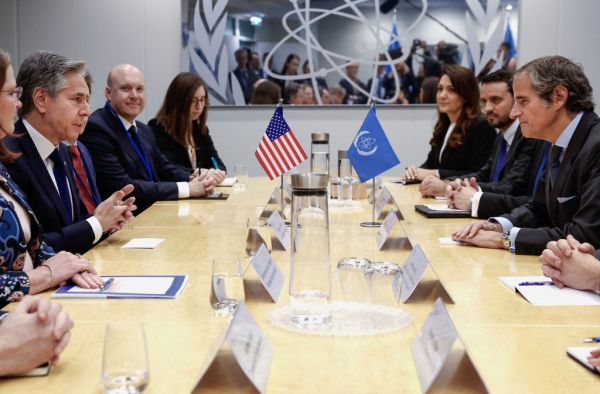The United States’ two most influential Middle Eastern partners are diverging in their responses to Iran’s burgeoning nuclear capabilities as U.S. attempts to rein in the Islamic Republic flounder. While Israel prepares for the possibility of a military showdown, Saudi Arabia appears poised to make amends with its longtime regional foe while eyeing an atomic arsenal of its own.
Saudi Arabia’s foreign minister met with his Iranian counterpart Thursday in Beijing to sign a Chinese-brokered agreement to reopen their respective embassies and resume flights between their two countries after cutting diplomatic ties in 2016. They also pledged non-aggression and a mutual respect for one another’s sovereignty in their first meeting in seven years. Although there’s no indication they touched on Iran’s recent nuclear advances Thursday, they reportedly discussed the issue in talks before signing the deal.
Saudi Minister of State for Foreign Affairs Adel al-Jubeir said in January Iran had “an obligation to give up” its nuclear program, but the Saudis also want to keep the door open for their own nuclear program. The Islamic kingdom has repeatedly asserted its own right to control the nuclear fuel cycle, refusing to preemptively limit its ability to enrich uranium and reprocess spent nuclear fuel. This approach is in part due to Saudi Arabia’s desire to break its dependence on oil by utilizing domestic uranium reserves for a civilian nuclear program, but Saudi leaders have also openly pledged to build a nuclear weapon if Iran does.
“[Saudi Arabia] has warned that if Iran obtains a nuclear weapon then this would push the whole region to a nuclear arms race,” Faisal J. Abbas, editor-in-chief of the Saudi Arabia-based Arab News, said in an interview.
Iranian weaponization may be close at hand. U.S. Joint Chiefs of Staff Chairman Mark Milley cautioned last month that Iran could produce enough nuclear material for one bomb in two weeks. His warning followed an inspection by the International Atomic Energy Agency (IAEA), the United Nations’ atomic watchdog, which detected “particles” of uranium enriched up to 83.7 percent—just below the 90 percent threshold generally considered weapons grade. It also reported Iran had amassed 192 pounds of uranium enriched to 60 percent—which, spun to 90 percent, would be just enough for a single weapon.
At its current pace, Iran will reportedly have enough uranium enriched to 60 percent to produce 10 weapons by the end of the year. “Only countries making bombs” enrich to such a level, IAEA head Rafael Grossi has said. But it would still take Iran 18 to 24 months to develop a nuclear-capable warhead after weaponizing, experts estimate.
Amid these advances, the Biden administration is reportedly floating an interim agreement to restore parts of the 2015 Joint Comprehensive Plan of Action (JCPOA), which dismantled parts of Iran’s nuclear program in exchange for sanctions relief and international monitoring. But both Israel and Saudi Arabia opposed the 2015 agreement, arguing the now-defunct deal allowed Iran to continue enrichment while building out its economy and destabilizing the region. Iran’s violent suppression of anti-government protests and weapons sales to Russia further complicate the diplomatic pathway.
For Israel, Iranian enrichment poses an existential threat.
Israeli officials told Axios last month that any Iranian enrichment above 60 percent could trigger a military strike on Iran’s program. Israel has been signaling the possibility for years, but Iran’s current enrichment levels may be upping the urgency in Jerusalem. “Israel doesn’t have the margin for error that Saudi Arabia has,” Jason Brodsky, policy director of United Against Nuclear Iran, told The Dispatch. “There are different threat perceptions, but they both recognize Iran as an enemy.”
Israel’s defense establishment must also contend with Iran’s reported efforts to obtain advanced air defenses. U.S. and Israeli officials told Bloomberg last month that Iran’s prospective purchase of Russian S-400 surface-to-air missile systems—which are more effective at shooting down stealth fighters than its current S-300s—could narrow the time window for an aerial attack on Iranian nuclear facilities.
“The only thing that has ever stopped rogue nations from developing nuclear weapons is a credible military threat or a credible military action,” Israeli Prime Minister Benjamin Netanyahu said in February. “The longer you wait, the harder that becomes. We’ve waited very long.” Grossi, head of the IAEA, warned last month that such a strike would be “illegal” and “a violation of the UN charter.”
But beyond international law, Israel would face logistical challenges in carrying out an effective attack. Israeli officials have reportedly been trying to speed up the delivery of four Boeing-made KC-46A tankers from the U.S., which would allow Israeli fighter jets to refuel midair and facilitate strikes on Iran. Their estimated delivery date is 2025.
“Both sides are testing each other’s responses. This is poking and prodding and testing the resolve of the adversary,” said Jonathan Schanzer, senior vice president for research at the Foundation for Defense of Democracies. “But the Israelis have made it clear that there will be consequences if Iran goes all the way.”
Given the enormous task of conducting successful strikes on Iran’s nuclear sites—which are spread throughout the large country and often built deep underground—Israel’s best bet is to vie for American support in such a campaign. Defense Secretary Lloyd Austin reaffirmed the U.S. commitment to never allow Iran to acquire a nuclear weapon during his visit to Israel last month, and President Joe Biden has repeatedly warned that every option is on the table for preventing such an outcome.
“As advanced as Israeli military technology is—and it’s extremely advanced—there are certain things that only the U.S. military is in possession of and there are certain capabilities and resources that only the U.S. can offer,” said Oren Kessler, a Tel Aviv-based analyst. “Israeli leaders would prefer, even if they don’t say so, that the U.S. lead a military strike. I think Israeli leaders often feel that the American political leadership shares their concerns, but perhaps not the sense of urgency that Israel feels being so close and so threatened by Iran.”









Please note that we at The Dispatch hold ourselves, our work, and our commenters to a higher standard than other places on the internet. We welcome comments that foster genuine debate or discussion—including comments critical of us or our work—but responses that include ad hominem attacks on fellow Dispatch members or are intended to stoke fear and anger may be moderated.